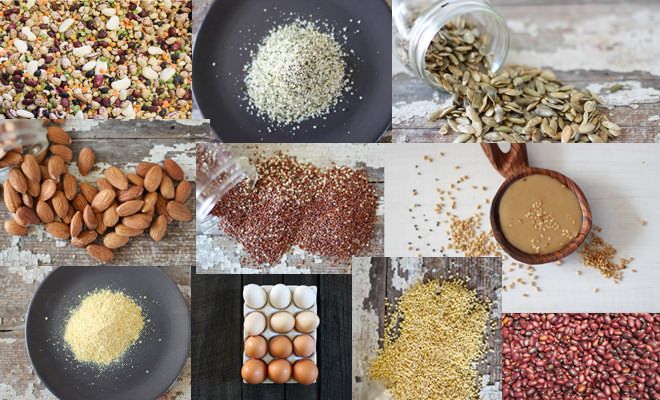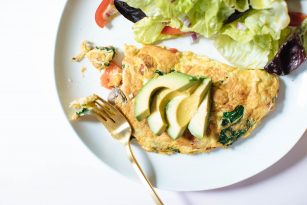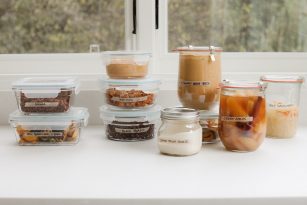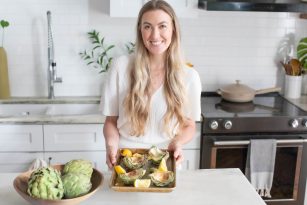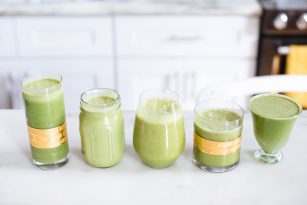Sources of plant-based protein is one of the most common areas many of my vegan/vegetarian clients ask about; whether it’s consuming enough or what types. Today, I’m here to tackle some of the most common questions asked related to protein in a plant-based diet. I also want to leave this an open ended blog post for you all to ask your own “Q’s” that you want to hear my “A” to! Here’s part 1 of my Q&A series, with more to come.
What is a plant-based lifestyle?
A plant-based lifestyle can encompass a wide variety of diets and foods eaten, but have one thing in common amongst all of these diets. The foundation of the diet/lifestyle is rooted in whole, fresh vegetables, fruit, nuts, seeds, grains, legumes, and other foods than come from plants. Being plant-based doesn’t confine you to titles of vegan, vegetarian, raw, etc.; they can be a template from which you build your own diet from- breaking it down, it means a diet based in plants. You all know I’m not a fan of labeling eating style and creating an entire identity around being “vegan”, “raw”, “paleo”, etc.; it creates a dogma a too strict of guidelines to fit into. I truly believe all of us can take what we like from certain diets and leave behind what doesn’t nourish our individual bodies, to create our own perfect template of what works for us!
Here are a couple of the most common plant-based lifestyles. Note all of these diets will have similarities such as eating fruits, vegetables, whole grains/gluten free grains, healthy fats, plenty of water, etc.
- lacto-ovo vegetarianism = eggs + dairy products
- lacto-vegetarianism = dairy products – no eggs
- ovo-vegeterianism = egg products – no dairy
- pesca-vegetarianism = fish – no other animal flesh ( may include dairy/eggs)
- vegan (abstains from all animal flesh foods and products including animal based products, i.e. honey, dairy, eggs, fish. This can also be extended into lifestyle such as avoiding leather, shoes, or other materials made from animals)
Q
Is it really true that vegetarians and vegans don’t consume enough protein?
A
No…and yes. First let’s start off with the first part of this answer, no. Vegetarian diets and even vegan diets which are a bit more restrictive, can contain more than enough protein for your body to thrive and overall maintain a healthy lifestyle when thought out and planned properly. One of the biggest problems I encounter with my clients who practice plant-based diets is the lack of overall protein in their diet including plant-based sources. Getting adequate amounts of protein is extremely important as protein is the building block of our cells, muscles, tissues, and so much more. Protein plays many roles in the human body, which are responsible for a myriad of functions some of them include, roles in transporting/storage, as a structural component (collagen, muscle tissues, etc.), messengers (hormones, etc.), enzymes, and antibodies.
Protein should be high priority in all diets, but especially in plant-based diets. Making sure you have enough protein throughout the day is key to long-term success. My tip is to consciously include a vegetarian protein source at every meal- this will help round out your overall intake of amino acids throughout the day (which again are the building blocks of protein). Check out the Academy of Nutrition and Dietetics position paper on vegetarian diets to help give you more insight on the benefits, but also nutrients of concern (that often get overlooked).
Q
How much protein do I need to eat daily?
A
Great question, with a many answers. This greatly depends on the individuals’ lifestyle, goals, digestion, diet practiced, etc. In general (very general terms), 0.8g of protein per kg of your bodyweight is a RDA/guideline recommended by the Academy of Nutrition and Dietetics. I would actually go a bit higher as vegetarian and vegan proteins are digested a bit differently and are not as bioavailable as animal proteins. For example, a 140lb woman would need: 140lbs / 2.2 (conversion from lbs. to kg) = 64kg. 64kg x 0.8g protein = 51g of protein per day. Let’s say this female was eating 2000 calories/day, protein would make up roughly 10% of her intake- this is fairly low in my opinion. Again I highly recommend meeting with a qualified practitioner or (me) to figure out what your ideal protein intake is for your goals.
Q
What are the best sources of protein for vegetarians?
A
There are plenty of great sources of plant-based proteins for vegans and vegetarians. First, remember the different types of vegetarianism? Well, the proteins consumed will be dictated by which “lifestyle” someone is practicing. Also note, in plant-based lifestyles many proteins also contain carbohydrates or healthy fats, for this reason I call these either (protein + carbohydrate) or (protein + healthy fat). This should be accounted for when you’re thinking about your overall intake of carbohydrates and healthy fats throughout the day. Also, it makes for an easy balanced meal!
Plant-based protein sources
Starchy proteins (protein + carbohydrate)
- Lentils
- Beans: chickpeas, navy beans, black beans, pinto, black eyed peas, etc.
- Quinoa
- Millet
- Amaranth
- Whole grain products
- Gluten free pasta (brown rice, quinoa, millet, etc.)
- Bean pasta
- Seiten (not gluten free!)
Fatty proteins (protein + healthy fats)
- Nuts: almonds, walnuts, pistachio, cashew, pecan, brazil, etc.
- Seeds: hemp seeds, chia seeds, pumpkin seeds, sunflower seeds, etc.
- Organic tempeh (also contain healthy fats/carbohydrates)
- Organic tofu
- Edamame
Mostly protein
- Spirulina
- Nutritional yeast (contains little carbohydrate)
- Quality protein powder supplements: brown rice, pea, sprouted rice, hemp protein, some of my favorites include Vega and Sunwarrior.
- Vegetarian food products (including vegetarian burgers, soy hot dogs, “cheese” etc.).
- These should be used in limited quantities, as they’re highly processed and typically very high in sodium. Focus on whole food sources as much as possible.
- Eggs & yogurts, etc.
- Addition of eggs for ovo- and lacto-ovo, addition of dairy products for those practicing lacto- or lacto-ovo, and addition of fish and shellfish for those practicing pesca-.
Also note, many vegetables, carbohydrates, and some fruits naturally contain trace amounts of protein as well (2-5g per serving depending on the vegetable)- these shouldn’t be “reliable” sources of protein unless you’re eating incredibly large amounts of these, which I also wouldn’t recommend due to the extremely high fiber content overtime.
Q
What about combining proteins to make it complete, is this still true?
A
No. Combining vegetarian proteins to make a “complete protein” or “complementary protein” is a theory of the past. We now know that our bodies store amounts of amino acids (i.e. the building blocks of protein) in our body and can be utilized to “make up” for any limiting amino acid in a vegetarian food. It is important however to have a wide variety of vegetarian proteins and foods rich in nutrients throughout the entire day. On the other hand, some foods such as vitamin C rich foods do help your body absorb the plant-based iron sources (non-heme iron)- for example, think of eating red bell peppers with beans or an orange with nuts/seeds.
Q
Do I have to eat protein powder all day long?
A
Possibly. If you’re an athlete, active, or engaging in fitness training it may be a smart idea to “supplement” your diet with good quality vegetarian based proteins to make up for your demanding needs. Notice the word supplement– this is not meant to be the bulk of your protein intake in your diet, protein powders are used to supplement (i.e. make up the deficit) the diet overall.
Even if you’re not very active, protein powder still may be a great option to incorporate into your diet to make sure you’re meeting your needs. There are great quality brands out there that can easily be mixed in with water, almond milk, coconut milk, smoothies, etc. Vega, Sunwarrior, Garden of Life Raw Protein, Plant Fusion, Perfect Fit, are some of my current favorites I enjoy using.
Protein-rich Nutrition Stripped recipes to try!
- Cinnamon Tahini Protein Smoothie
- Pumped up Plant-protein Power Smoothie
- Spirulina Energy Globes
- Baked Eggs with Garlic Kale and Sun-dried Tomatoes
- Nourish Bowl
- Nourishing Muesli
- Simply and Savory Oat Pancakes
- Kale Hemp Tabbouleh
- Maple Tempeh with Herbed Quinoa
- Peanut Tempeh Stir-fry
I hope that answers some of your initial questions about plant-based protein. Let me know how you like these Q&A’s, I’d love to do more to answer your questions. Also, what other “nutrition” related topics would you like me to start covering on Nutrition Stripped? I want to hear from you, comment below! Also, if you’re wondering how much protein you should be eating especially as a new plant-based dieter, check out my services and we’ll chat about it!
xx McKel
p.s. stay tuned later this week for a plant-based protein rich snack AND a protein powder review of my favorites!

